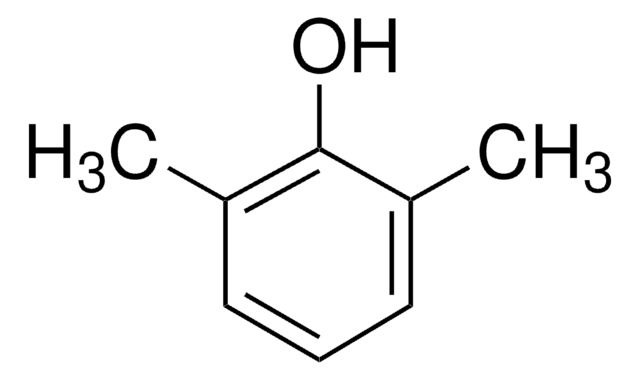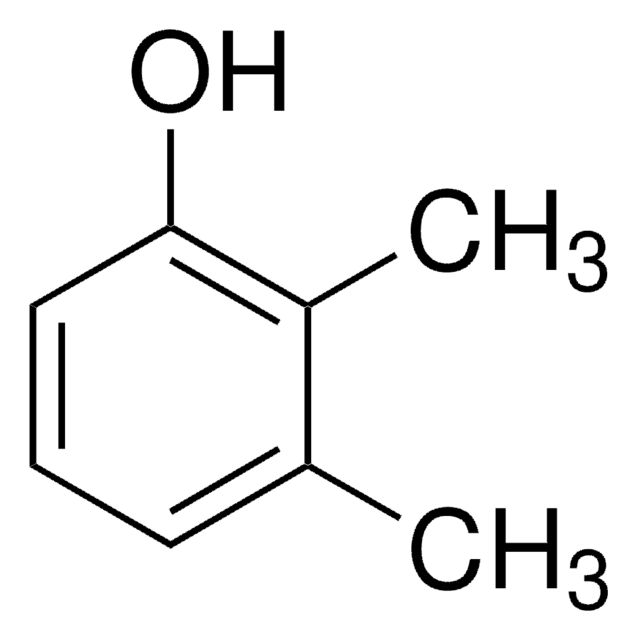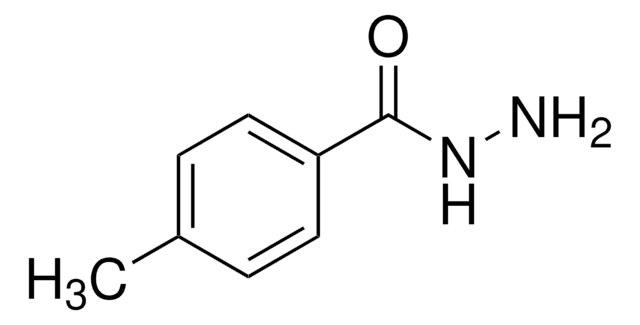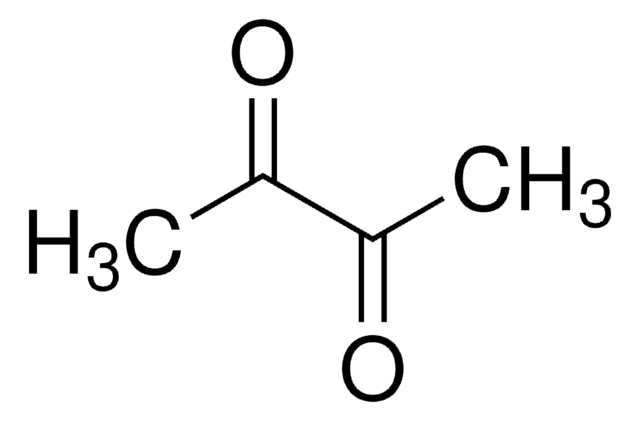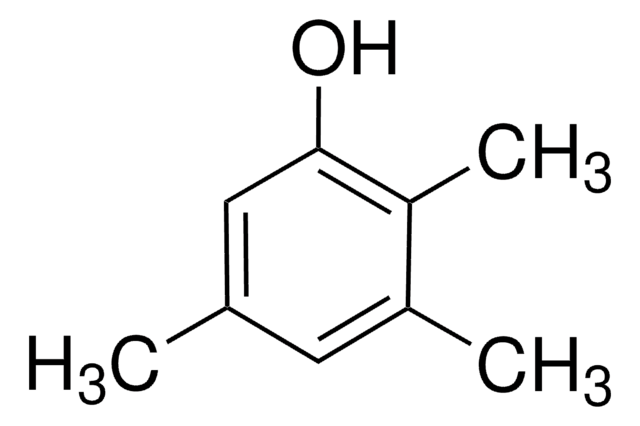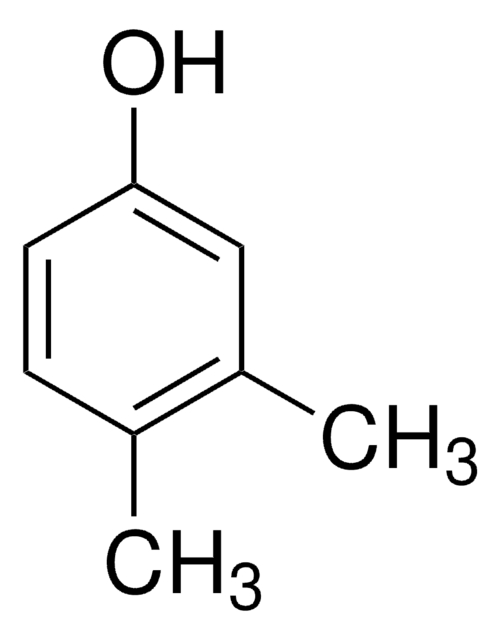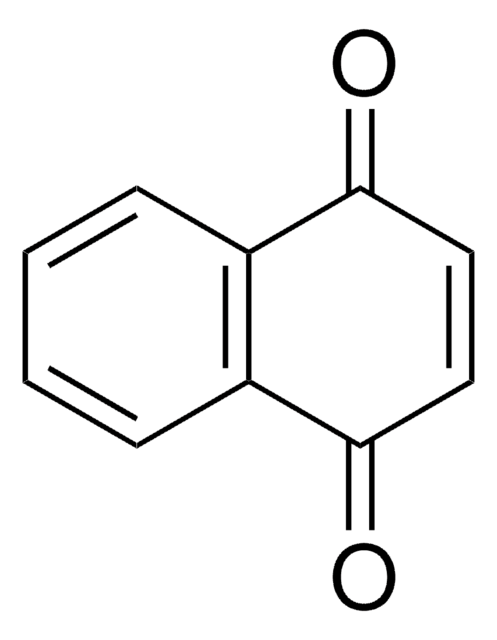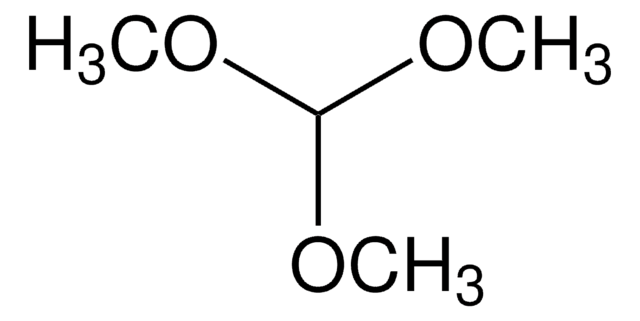All Photos(1)
About This Item
Linear Formula:
(CH3)3C6H2OH
CAS Number:
Molecular Weight:
136.19
Beilstein:
1859675
EC Number:
MDL number:
UNSPSC Code:
12352100
PubChem Substance ID:
NACRES:
NA.22
Assay:
97%
Recommended Products
Quality Level
Assay
97%
bp
220 °C (lit.)
mp
70-72 °C (lit.)
71-74 °C (lit.)
SMILES string
Cc1cc(C)c(O)c(C)c1
InChI
1S/C9H12O/c1-6-4-7(2)9(10)8(3)5-6/h4-5,10H,1-3H3
InChI key
BPRYUXCVCCNUFE-UHFFFAOYSA-N
Looking for similar products? Visit Product Comparison Guide
Signal Word
Danger
Hazard Statements
Precautionary Statements
Hazard Classifications
Aquatic Chronic 2 - Eye Dam. 1 - Skin Irrit. 2 - STOT RE 2 Oral - STOT SE 3
Target Organs
Respiratory system, Stomach
Storage Class Code
11 - Combustible Solids
WGK
WGK 2
Flash Point(F)
Not applicable
Flash Point(C)
Not applicable
Personal Protective Equipment
dust mask type N95 (US), Eyeshields, Gloves
Choose from one of the most recent versions:
Already Own This Product?
Find documentation for the products that you have recently purchased in the Document Library.
Customers Also Viewed
Zhicheng Zhou et al.
Environmental science & technology, 52(18), 10391-10399 (2018-08-23)
Dissolved black carbon (DBC) is an important component of the dissolved organic matter (DOM) pool. Nonetheless, little is known about its role in the photochemical processes of organic contaminants. This study investigated the effect of DBC on the phototransformation of
Cynthia D Selassie et al.
Journal of medicinal chemistry, 48(23), 7234-7242 (2005-11-11)
In this comprehensive study on the caspase-mediated apoptosis-inducing effect of 51 substituted phenols in a murine leukemia cell line (L1210), we determined the concentrations needed to induce caspase activity by 50% (I50) and utilized these data to develop the following
Our team of scientists has experience in all areas of research including Life Science, Material Science, Chemical Synthesis, Chromatography, Analytical and many others.
Contact Technical Service